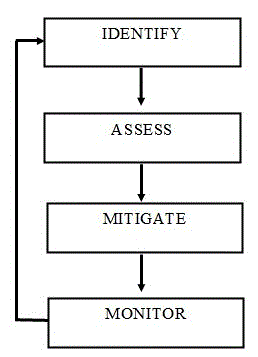Political risk is sometimes defined as the possibility that government policies might change suddenly. However, the concept really involves much more than this.
It is not mere uncertainty. Risk implies a negative impact. Most companies would not regard the prospect of a sudden lowering of taxes or regulatory changes leading to windfall profits as a risk, even though the mechanism by which this change in the business environment takes place is clearly political. Moreover, government policy changes do not need to be sudden to have a negative impact on business. Of course, abrupt policy changes are more difficult to handle in comparison to slower - and perhaps more subtle - policy adjustments. However, over time such moves can be equally deterimental to the profitability of the business.
Political risk is not simply confined to the actions of political institutions. Rather, it emcompasses developments within the entire political process. Thus, the possibility of boycotts and the like need to be incorporated within the defination (and any resulting political risk model) even if formal government policies remain favourable. Of course, the definition does not normally include risks arising from macroeconomic trends, marketing the the competitive pressures faced by a business. That said, some macroeconomic issues may qualify for inclusion. For example, while the health of the government's current and projected fiscal position is generally regarded as an economic rather than a political issue, the distinction is not always clear cut. The unwillingness of a government or legislature to pursue responsible fiscal policies is certainly a political risk. The current financial problems facing both the United States and various states in the European Union (notably Greece and Italy) are good examples.
It is perhaps worth pointing out here that economists sometimes seem to spend an inordinate amount of time discussing what a government should do rather than what it most likely will do given the political constraints on policy formulation and the attitudes and whims of those in power.
Such strikingly unrealistic analyses seemed particularly common in Malaysia in the wake of Kuala Lumpur's decision in 1998 to peg the ringgit to the US dollar. For years afterwards economists debated the continuing wisdom of the strategy, with many predicting a change of policy on the grounds that economic sense dictated that the peg should be removed (or at least significantly adjusted) in order to give policymakers greater control over inflation and interest rates.
But such analyses ignored the intense determination of Dr Mahathir Mohamad, Malaysia's fiesty prime minister at the time, to maintain the policy. When the peg was first declared Dr Mahathir declared that it would not be removed until the international financial system was reformed in a way that would eliminate damaging speculative attacks on the currencies of small countries such as his own. Reform of the sort that Dr Mahathir had in mind, of course, was highly unlikely. However, the prime minister's firm grip on power an uncompromising track record in other matters meant that no significant adjustments in exchange rate policy could be expected as long as he remained in office.
All things considered, political risk is best defined as the possibility that changes in the business operating environment arising out of the political process, either directly or indirectly:
1. result in investors either losing their money; or,
2. produce a situation in which the investment is not as profitable as it might otherwise have been.
See also:
Political Risks Still a Threat to Thai Recovery
Political Risks the Key Obstacle to Growth
Election Mentality Hurts Governance
What Next After Vietnam Congress?

